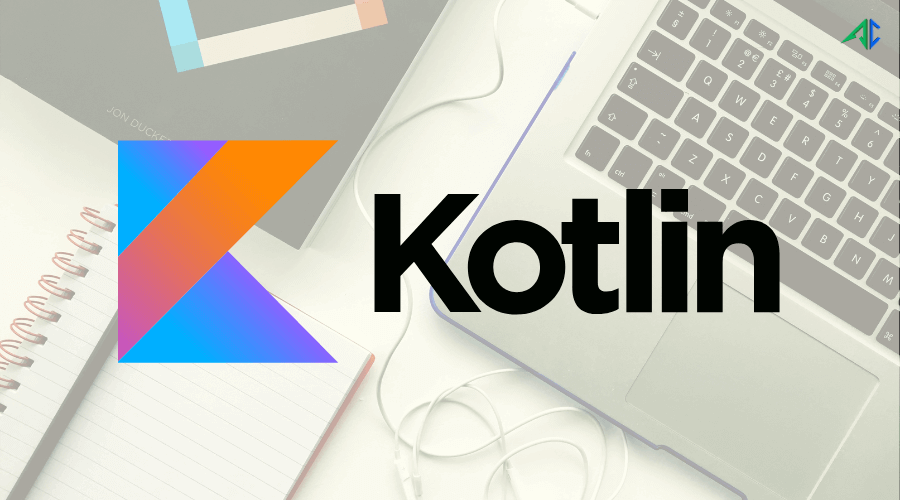Table of Contents
You may have just recently started hearing about the Kotlin programming language, but developers have known about — and loved it — for a while. In this blog, we’ll discuss everything you need to know about Kotlin language – a smarter way to code Android apps.
Kotlin has been gaining popularity worldwide for a variety of reasons. The language has skyrocketed tremendously since its launch and quickly joined the ranks of the most popular programming languages. Now that Google supports Kotlin for Android app development over Java, it has become one of the most sought after programming languages among developers.
Per the PYPL Popularity of Programming Language Index, Kotlin is ranked among the top 15 best programming languages in September 2020 worldwide. Additionally, according to JetBrains, Kotlin is among the top 3 languages developers are planning to adopt or migrate to. Considering this, many businesses are seeking a skilled mobile app development company that can develop a revenue-driven app and help them gain a competitive advantage.
What Is Kotlin?
At Google I/O 2017, Google announced that it would start supporting a new Android development language: Kotlin. It is an open-source, statically typed programming language that can transpile Java bytecode to run on the Java Virtual Machine (JVM) or Android, combining object-oriented and functional programming features.
Kotlin is developed by JetBrains, a company behind the IntelliJ Java IDE that Android Studio is based on. They designed Kotlin to be 100% interoperable with Java, allowing developers to use any Java libraries and frameworks in Kotlin, and vice-versa.
Top Popular Apps/Companies Using Kotlin
Is Kotlin a new era of Android app development? This question often arises as within a year of launch, Kotlin has been trending as a top-class replacement of Java for Android development. Over 60% of Android developers are now using Kotlin, becoming the fastest-growing language on GitHub in terms of the number of contributors. Some of the world’s most popular apps are built with Kotlin:
What Is Kotlin Used For?
Being a general-purpose programming language, Kotlin can be applied in various ways, for cross-platform mobile, Android, JavaScript, and server-side development. Kotlin also lets developers use popular libraries and frameworks such as ReactJS and VueJS.
Today, it is most prominently used for Android development. Let’s look at the corresponding sub-projects of Kotlin:
- Kotlin/JVM: Enables writing JVM applications by transpiling to Java bytecode. For example -Android development, Spring services, and desktop applications.
- Kotlin/JS: Allows writing web applications by transpiling to JavaScript. For example, – React apps and Vanilla JS apps.
- Kotlin/Native: Enables writing applications for embedded devices or iOS development. For example – iOS apps, microcontroller programming, and others.
Kotlin supports multi-platform application development, which enables you to share code between apps for different platforms. The most obvious use case is to share core functionality between the Kotlin Android app and the Kotlin iOS app.
Kotlin Language and Syntax
In terms of language and syntax, Kotlin simply aims to be readable, pragmatic, and safe. To fully appreciate what that means, let’s take a look at the language’s core tenets.
- Readability – Kotlin is supported by language features such as type inference, data classes, and infix functions. Such features enable concise code without sacrificing readability.
- Pragmatism – JetBrains themselves use it to develop their IDEs. Kotlin incorporates industry feedback and addresses large-scale app development issues, crucial for the large-scale enterprise app development Kotlin is frequently used for JetBrains itself uses it to develop its IDEs.
- Safety – Kotlin aims to prevent common app bugs by design. This is accomplished through several language features such as nullable types (to avoid null pointer exceptions) and nudging towards the best practices like designing for inheritance.
Why Do Developers Prefer Kotlin Over Any Other Language?
Why has Kotlin created such a buzz? Why do many developers love it? Why should one choose Kotlin over others? We decided to handpick several answers to all of those questions. Let’s dive in and learn!
Open-Source
Kotlin was introduced with the need for more concise language compatible with Java and JavaScript in mind. Instead of keeping it as an internal project, JetBrains decided to open-source it in 2012. Since then, satisfied developers have sparked Kotlin’s meteoric rise through the app development world.
Lesser Code Writing
Java requires detailed code writing; the Kotlin compiler, on the other hand, can understand code and write a lot of code itself with ease. It is believed that developers can write 20% less code in Kotlin, drastically reducing boilerplate code. As a result, developers can spend more time on the exciting parts of the coding, leaving Kotlin to manage the routine code itself.
Backed by Google
Perhaps the most appealing thing about Kotlin language is that Google backs it. Google’s support gave life to Kotlin when it declared Kotlin to be the officially supported language for Android at its I/O annual summit 2017. With Google’s announcement, many prior fears, such as bugs, unsupported formats, and others, were laid to rest, and developers can now freely develop apps using Kotlin.
100% Interoperability with Java
Kotlin and Java are two similar languages that can, fortunately, go hand-in-hand. Kotlin has 100% interoperability with Java, meaning developers can have any percentage of code written in Kotlin, and the rest in Java. If developers have the codes from both Java and Kotlin in the same project, they can compile correctly. In short, if developers are working with Kotlin, they get the benefit of vast Java commands, Java libraries, and Java frameworks.
Object-Oriented and Functional Language
Being both object-oriented and functional constructs, Kotlin wins over other languages, which means it can be used in object-oriented and functional programming styles, offering developers great features like high-order functions, function types, and lambdas to explore functional programming.
Server-Side Development
Kotlin is not only used for Android development but server-side developments as well. With 100% compatibility with JVMwhile maintaining full compatibility with existing Java-based technology stacks, developers can leverage server-side development using Spring and Vert frameworks.x, Ktor, Kotlinx.html, and more.
Null Safety
One of the best features of Kotlin is that there is no NullPointerException. With Kotlin, developers don’t need to worry about NPEs because null safety is built into Kotlin’s type system. The Kotlin system refuses to compile code that tries to assign or return null, so developers can catch NPEs at compile time instead of runtime, and eliminate the danger of null references from code.
Use of Existing Java Frameworks and Libraries
Kotlin can readily use all existing Java frameworks and libraries. Kotlin programs can use all advanced frameworks too, which rely on annotation processing. Kotlin is an easy-to-integrate language and is frequently integrated with Gradle, Maven, and other build systems.
Extension Functions
It is easy to compose functions in Kotlin with extensions and operators. As in C# and Gosu, Kotlin gives developers the ability to extend a class with new functionality without inheriting the class or using any design pattern like Decorator. Extension functions help developers to extend the functionalities of classes without touching the core code.
Great IDE and Tooling Support
Kotlin’s excellent support is backed by JetBrains, a company that’s created some of the world’s most used IDEs. With a strong community behind Kotlin’s language and tools, developers can always have support when they need it. Additionally, all of Android Studio’s IDE features work perfectly in Kotlin.
Kotlin vs Java
For many years, Java was the only programming language for Android and server-side development. However, the launch and rise of Kotlin have changed Java’s dominant position. Let’s take a look at how the two heavyweights stack up against each other.
Size, Complexity, and Code Quality
Java requires more code lines, while Kotlin enables developers to accomplish the same tasks with lesser code, making it more expressive. This helps developers make code more organized, readable, and reusable, thus lessening their efforts and increasing productivity. To help manage the quality of code, Kotlin uses type inferencing, eliminating overly tedious syntax that Java developers face.
No NullPointerException
Built-in null safety makes Kotlin an obvious leader when it comes to Android development. NullPointerException is one of the major causes of Android mistakes as Java enables developers to assign a null value to an object reference, resulting in Android apps’ crash. Kotlin, on the other hand, offers inherent null safety, which means no variable or object can be assigned with a null value.
Interoperability
Interoperability is probably one of the most attractive features of Kotlin. Being 100% interoperable with Java allows writing some parts of code that work seamlessly within Java code, making it much easier to switch from Java to Kotlin during development.
Coroutine Support
Whenever developers start a long-running process with CPU intensive operations in Java, the corresponding thread gets blocked. It is possible to create multiple threads but managing them is complex. With Coroutine support, however, developers can create multiple threads to run long processes in Kotlin without thread blocking.
Delegation
Java lacks this feature, which makes Kotlin superior in terms of using multiple inheritances. Kotlin allows for a receiving object to delegate operations to a second delegate object, called the helper object, containing original content so that developers don’t need to rewrite it. The multiple inheritances avoid the duplication of code.
Compile Time and Performance
Talking about performance, Kotlin runs as fast as Java. However, the support of inline functions and the use of lambdas allow developers to create apps that run faster than Java code. Java compiles 10-15% faster than its counter partner in clean builds; however, Kotlin works slightly better, thus better handling functional programming.
Functional Programming
Java supports functional programming, but only in Java 8, whereas most Android development is done with Java 6 and 7. Kotlin is a mix of functional, procedural programming, which consists of many useful methods like lambdas, higher-order functions, lazy evaluation, and more; most of these methods are not offered for Android developers in Java 8.
Conclusion
Kotlin is safer, stabler, more reliable, and faster, eliminating null reference errors, enabling extension functions, supporting functional programming, and adding coroutines. With big market players like Google, Netflix, Pinterest, Evernote, Airbnb, and Trello using Kotlin, it’s no wonder why both developers and companies are gravitating to Kotlin in droves.
We would love to hear your comments relating to the post. Got some other thoughts? Drop us words through our contact page.







